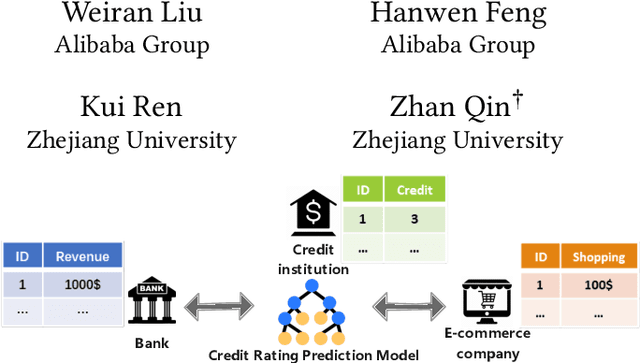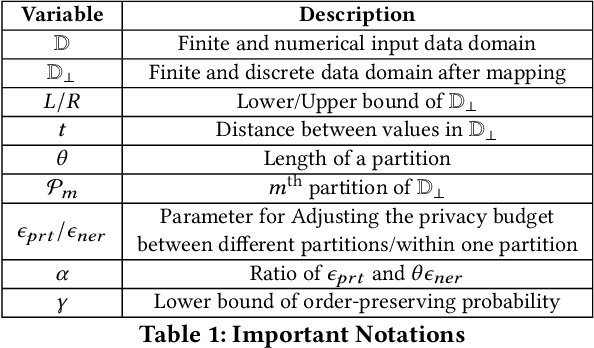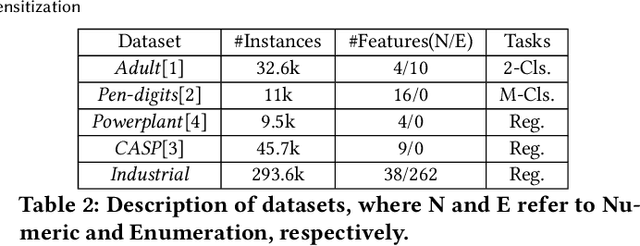Yuke Hu
Module-Aware Parameter-Efficient Machine Unlearning on Transformers
Aug 24, 2025Abstract:Transformer has become fundamental to a vast series of pre-trained large models that have achieved remarkable success across diverse applications. Machine unlearning, which focuses on efficiently removing specific data influences to comply with privacy regulations, shows promise in restricting updates to influence-critical parameters. However, existing parameter-efficient unlearning methods are largely devised in a module-oblivious manner, which tends to inaccurately identify these parameters and leads to inferior unlearning performance for Transformers. In this paper, we propose {\tt MAPE-Unlearn}, a module-aware parameter-efficient machine unlearning approach that uses a learnable pair of masks to pinpoint influence-critical parameters in the heads and filters of Transformers. The learning objective of these masks is derived by desiderata of unlearning and optimized through an efficient algorithm featured by a greedy search with a warm start. Extensive experiments on various Transformer models and datasets demonstrate the effectiveness and robustness of {\tt MAPE-Unlearn} for unlearning.
Quantifying and Defending against Privacy Threats on Federated Knowledge Graph Embedding
Apr 06, 2023



Abstract:Knowledge Graph Embedding (KGE) is a fundamental technique that extracts expressive representation from knowledge graph (KG) to facilitate diverse downstream tasks. The emerging federated KGE (FKGE) collaboratively trains from distributed KGs held among clients while avoiding exchanging clients' sensitive raw KGs, which can still suffer from privacy threats as evidenced in other federated model trainings (e.g., neural networks). However, quantifying and defending against such privacy threats remain unexplored for FKGE which possesses unique properties not shared by previously studied models. In this paper, we conduct the first holistic study of the privacy threat on FKGE from both attack and defense perspectives. For the attack, we quantify the privacy threat by proposing three new inference attacks, which reveal substantial privacy risk by successfully inferring the existence of the KG triple from victim clients. For the defense, we propose DP-Flames, a novel differentially private FKGE with private selection, which offers a better privacy-utility tradeoff by exploiting the entity-binding sparse gradient property of FKGE and comes with a tight privacy accountant by incorporating the state-of-the-art private selection technique. We further propose an adaptive privacy budget allocation policy to dynamically adjust defense magnitude across the training procedure. Comprehensive evaluations demonstrate that the proposed defense can successfully mitigate the privacy threat by effectively reducing the success rate of inference attacks from $83.1\%$ to $59.4\%$ on average with only a modest utility decrease.
OpBoost: A Vertical Federated Tree Boosting Framework Based on Order-Preserving Desensitization
Oct 04, 2022



Abstract:Vertical Federated Learning (FL) is a new paradigm that enables users with non-overlapping attributes of the same data samples to jointly train a model without directly sharing the raw data. Nevertheless, recent works show that it's still not sufficient to prevent privacy leakage from the training process or the trained model. This paper focuses on studying the privacy-preserving tree boosting algorithms under the vertical FL. The existing solutions based on cryptography involve heavy computation and communication overhead and are vulnerable to inference attacks. Although the solution based on Local Differential Privacy (LDP) addresses the above problems, it leads to the low accuracy of the trained model. This paper explores to improve the accuracy of the widely deployed tree boosting algorithms satisfying differential privacy under vertical FL. Specifically, we introduce a framework called OpBoost. Three order-preserving desensitization algorithms satisfying a variant of LDP called distance-based LDP (dLDP) are designed to desensitize the training data. In particular, we optimize the dLDP definition and study efficient sampling distributions to further improve the accuracy and efficiency of the proposed algorithms. The proposed algorithms provide a trade-off between the privacy of pairs with large distance and the utility of desensitized values. Comprehensive evaluations show that OpBoost has a better performance on prediction accuracy of trained models compared with existing LDP approaches on reasonable settings. Our code is open source.
 Add to Chrome
Add to Chrome Add to Firefox
Add to Firefox Add to Edge
Add to Edge